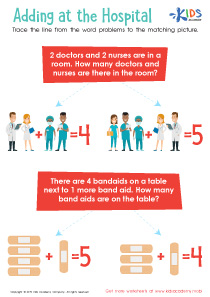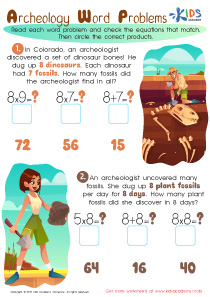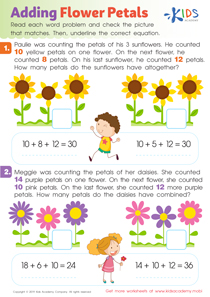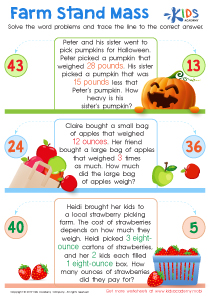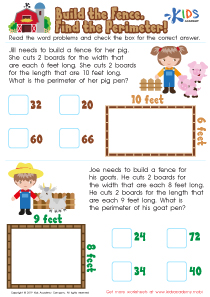Normal Money Word Problems Worksheets for 8-Year-Olds
1 filtered results
-
From - To
Introduce your eight-year-old to the fascinating world of everyday math with our "Normal Money Word Problems" worksheets. These educational homework sheets are meticulously designed to sharpen young minds by solving real-world money scenarios. Each worksheet encompasses a variety of engaging problems that challenge children to apply basic arithmetic skills in practical situations, such as making change, budgeting allowances, and understanding prices. Perfect for reinforcing math concepts at home, these sheets not only boost numerical literacy but also prepare children for confident financial decision-making in the future. Make learning fun and relevant with our expertly crafted educational tool!
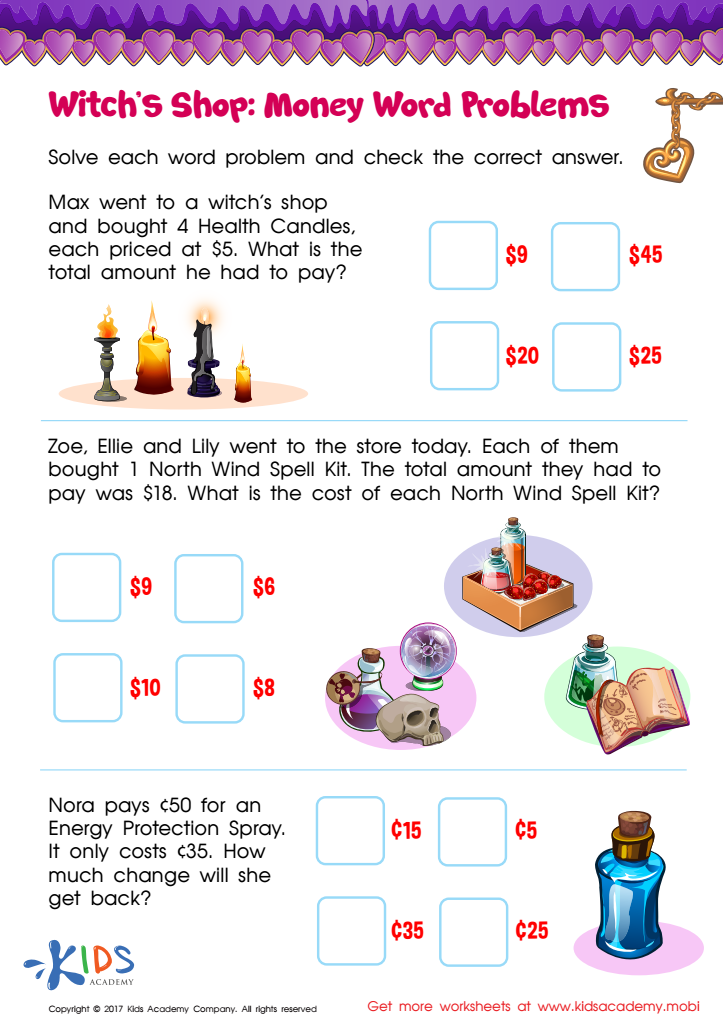

Money Word Problems Printable
The Importance of Normal Worksheets on Money Word Problems for Eight-Year-Olds
In the formative years of education, school worksheets tailored to specific topics play a pivotal role in enhancing a child's learning experience. Particularly for eight-year-olds, normal worksheets on money word problems are not just another educational tool; they are an essential component of their mathematical development and real-world understanding.
Money word problems, a frequent subject in school worksheets, offer a unique and practical approach to learning that engages children in real-life scenarios. By incorporating money as a central theme, these worksheets do more than just teach basic arithmetic—they lay the groundwork for financial literacy, which is crucial in today's economy-driven world.
Building a Strong Mathematical Foundation
At eight years old, children are at a crucial stage in their cognitive development. They are transitioning from simple counting and basic addition or subtraction to more complex mathematical concepts. School worksheets on money word problems are designed to reinforce these arithmetic skills by introducing practical problems that require addition, subtraction, multiplication, and sometimes division. These worksheets challenge children to apply their mathematical knowledge in scenarios involving money, such as calculating change, adding expenses, or comparing prices.
Enhancing Problem-Solving Skills
One of the key advantages of using normal worksheets focused on money word problems is the enhancement of problem-solving skills. These worksheets require children to read and comprehend the problem, identify what is being asked, and decide on the best method to arrive at a solution. This process not only improves their mathematical abilities but also enhances critical thinking and analytical skills, which are valuable across all areas of study and aspects of life.
Introducing Financial Literacy Early On
Introducing concepts of money through school worksheets equips children with the basics of financial literacy early in life. Understanding money management, the concept of saving, spending, and the value of money are fundamental skills that, when taught early, prepare children for the financial decisions they will face in the future. Through structured word problems, children learn that money is not just for buying things but also a resource that requires effective management.
Engaging and Contextual Learning
Children often find learning more enjoyable and engaging when they can see its application in real-life contexts. Money word problems in school worksheets provide context to mathematical figures, making the learning process interesting and relatable. Whether it's figuring out the total cost of new games, calculating how much money is left after buying a snack, or deciding if they’ve saved enough for a toy, these scenarios keep children interested and motivate them to solve problems that mimic real life situations.
Encouraging Independent Learning
School worksheets on money word problems encourage independent learning. As children work through these problems, they often encounter questions that challenge their current understanding, prompting them to think independently and arrive at solutions on their own. This fosters a sense of confidence and self-reliance in young learners, qualities that are beneficial throughout their educational journey and beyond.
Supporting Curriculum Goals
Educational curriculums, especially in mathematics, are designed to build skills progressively. Normal worksheets on money word problems are aligned with these curriculum goals, providing a structured way for children to develop and demonstrate their understanding of mathematical concepts. Teachers can use these worksheets not only as an instructional tool but also as a way to assess student progress and understanding.
Facilitating Parental Involvement
Money word problems can also be a great tool for parental involvement in their child's education. These worksheets offer parents a clear insight into what their children are learning and provide a practical way to engage with their child's education. Working on worksheets together allows parents to discuss the importance of money management and practical mathematics with their children, reinforcing the learning that occurs in the classroom.
Conclusion
In conclusion, normal worksheets on money word problems are invaluable in the educational journey of an eight-year-old. They not only help solidify basic mathematical skills but also introduce essential life skills such as problem-solving, financial literacy, and independent thinking. By engaging young learners with real-world scenarios, these worksheets make learning meaningful and enjoyable. As children grow and navigate through various educational stages, the foundation laid by engaging in such practical learning experiences will undoubtedly contribute to their overall academic success and preparation for the real world.
 Assign to the classroom
Assign to the classroom




